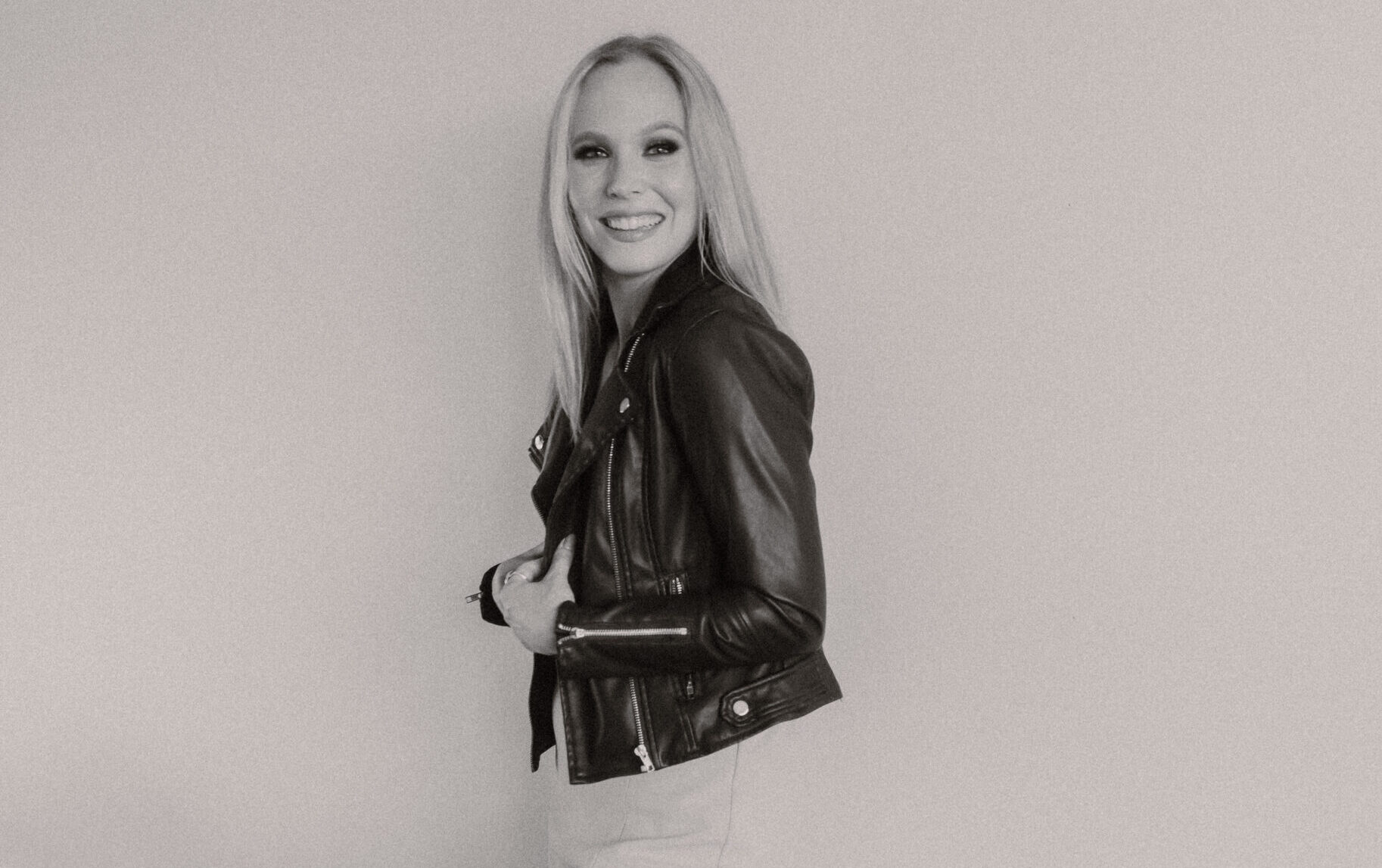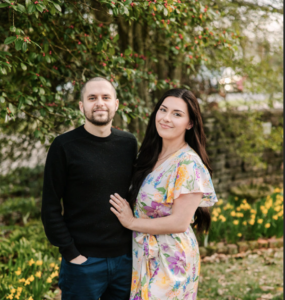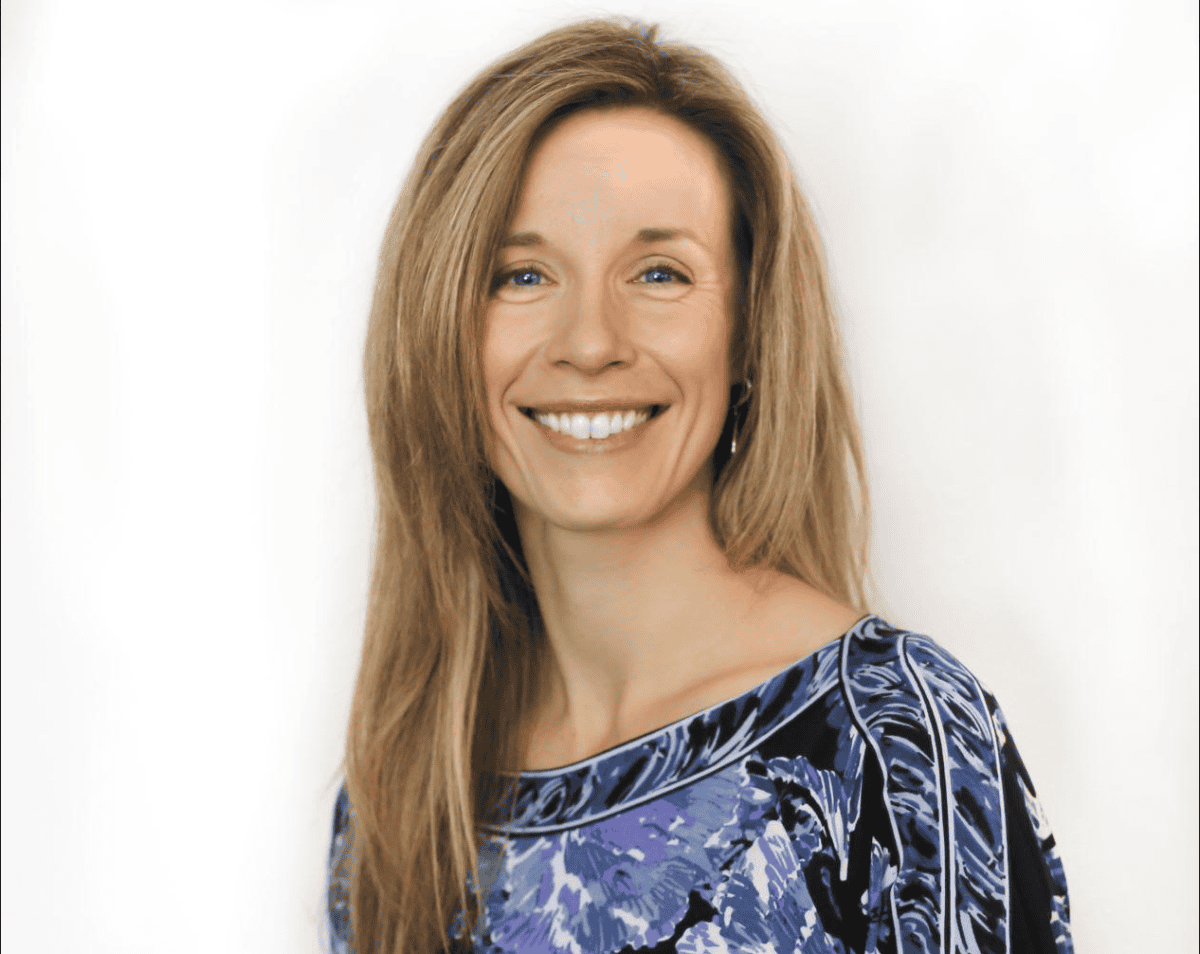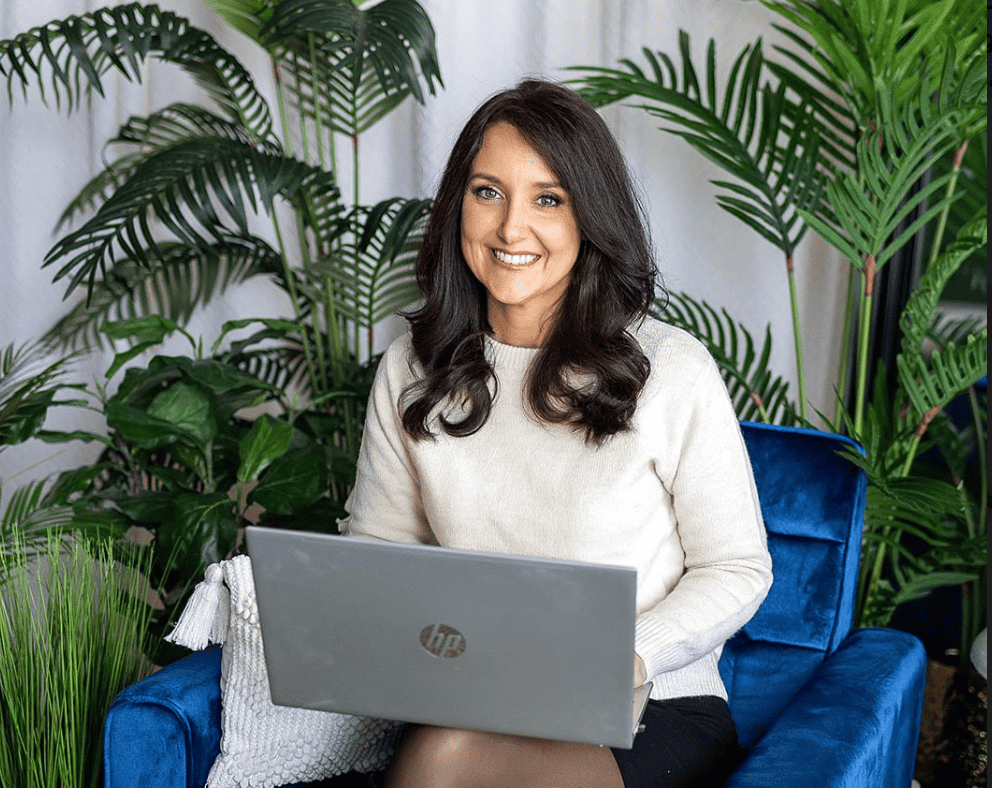In life, some of our most profound transformations come from moments of unexpected change. For Melissa Jirovec, the turning point came when her husband suffered a traumatic brain injury, an event that redefined her life’s path. Transitioning from a career in nursing to becoming a full-time caregiver, and eventually an Empowerment Strategist, Melissa’s journey is a testament to resilience and personal growth. Through her experiences, she discovered the power of personal development and the importance of creating a life that aligns with one’s true values. Now, she’s on a mission to help others navigate their own life changes with courage, clarity, and compassion.
What was the turning point that led you to leave your career and start Melissa Jirovec Coaching?
In 2014 I was working as a Registered Nurse in a small town hospital. I’d only been out of school a year, but already I was starting to feel that I hadn’t made the right career choice. We were always short-staffed, and I couldn’t spend the time I felt I needed to with my patients- that bothered me. And it was taking a toll. To be honest, I don’t know that I ever would have left if fate hadn’t intervened, because my father had paid for my education, and I felt I owed it to him to stick it out. But on June 28th 2014, my husband was in a terrible accident and I became a caregiver and advocate at 23.
For 6 years, my husband’s care and our family were my whole life. I went to every appointment, filled out endless paperwork, attended meeting after meeting, moved us several times, and then we had our first babe, and our second. Every aspect of our life had changed; our home, where we lived, our relationship, our careers, our finances, our plan for the future etc. I had to rebuild and reevaluate my career because my family relied on me heavily.
Being a caregiver can be isolating, and being a new mom only contributed to that. I had a lot of time to reflect on my life and get to know myself better. Personal development gave me hope- that no matter how confusing and uncertain things were, I could figure it out. It taught me resilience, boundaries, and self-love. I became so passionate about personal growth that it seemed like a great place to start in building a new, flexible career for myself.
How did your husband’s traumatic brain injury impact your decision to shift to a personal development and coaching career?
My husband’s accident acted like a near-death experience for me. It shook me and woke me up in a way that is difficult to put into words. We often go through life believing that we’ve created a secure present and foreseeable future for ourselves- without realizing that everything can change in but a moment of time. And suddenly, the life you once knew is over, and a drastically new chapter begins. Some events can change us so profoundly that we start to question everything, and that happened with me. I started to question how I operated, what I believed in, and what I actually wanted. I became highly aware of how disconnected from ourselves we can be, which creates disconnection from others too. Suddenly all the small stuff I used to sweat seemed laughable. All my fears and worries seemed small compared to what I was living now. His accident provided me with clarity, and the ability to surrender and trust. And I knew that if I could help others tap into that (without the trauma of a terrible event), that would be a fulfilling contribution to the world.
Can you describe the challenges you faced while balancing caregiving responsibilities with starting and growing your business?
The decision to start a business was exciting. For years I’d been caring for others, and this felt like doing something for me- building something of my own. I threw myself into it, emotionally, financially, energetically. Partly because I truly believed in the value of the services I offered, and partly because I was blissfully unaware of the realities of building and growing a successful business!
I started my business in January of 2020. We’d just moved to a brand-new city to be closer to family supports (4 hours instead of 6) and then BAM! We’re in a global pandemic. The move and uncertainty of the pandemic caused a regression of my husband’s brain injury. His condition became more erratic and confusing. I was navigating trying to find him help (a lot of community resources were unavailable with lockdown) and caring for my children. My daughter was in her first year of school, which went from offline to online, and I had to juggle her classes with my meetings. I hired babysitters to come into the house to help with my son, and we went through so many- some stole from me, some smoked in my home without consent, and some ghosted us or up and quit after a few days of getting paid. It was a challenge.
In the personal development space, there’s a lot of talk of financial abundance, time freedom, manifestation, creating something incredible for yourself and your family- and that honestly kept me going. My business inspired me and I let myself dream. Even though I wasn’t getting any clients at all, the idea that I could and that I could create a life that would meet all the unique needs of me and my family- that got me through those though times.
How has your personal journey influenced your approach as an Empowerment Strategist?
The personal development industry can provide immensely valuable knowledge, opportunities and resources to help people navigate the edgiest, deepest, most vulnerable issues, abstract concepts, and provides tools and supports for our human side- for example, the part of us that is always wanting/seeking more because we’re meant to grow… The part of us that struggles with self-love, self- discipline, self-care, and self-expression… The part of us that holds back and doesn’t follow through because what we know feels safer than what we don’t… The part of us that wants better for ourselves and isn’t sure how to get it… I was just blown away by what’s available when I started to allow myself to look, learn, and experiment. But one thing became incredibly obvious to me in my own journey, and it’s this-
Unique individuals with unique circumstances need customized solutions.
Far too many of the hacks, strategies, recommendations and knowledge out there are one-size fits all solutions, assuming ‘this method’ is right/best for everyone. And that’s just not the case with most things.
Over the years, we’ve seen clients in the coaching industry become quite jaded, and with good reason. They’ve paid large sums for personal development support, and walk away feeling unsatisfied. Why? Because a particular professional who offered the answer to their problem- well it didn’t work for them. They assumed that if they paid, it would (been there!).
I ended up switching my title from Coach to Strategist for this reason- I wanted my clients to understand that when they came to me, we would figure out what’s going to be best for them, where they’re at, with what they want, and what they have going on. I wasn’t going to give them a blueprint and tell them to follow it or they don’t want it bad enough (if I had a nickel for how many times I heard that on my own journey…). I want to help people where they are. That’s the kind of support I would have loved years ago.
What role did personal development play in your transition, and how has it shaped your coaching methods?
By transition, I take it you mean my career transition. Personal development taught me that I could start over. That it was not only okay to start over in any area of my life, but a natural consequence of self-evolution. We are always changing and evolving, of course it makes sense that sometimes we’ll want to do new things, or make big changes in our lives! That was such a big relief. I’d previously felt like I failed because I hadn’t continued on as a nurse, but I learned that starting over isn’t failure when you chose to move away from something that’s not working for you towards something that will. That’s bravery, self-love, and alignment.
My coaching methods have developed a lot over time. I had to explore getting coaching myself to really get a feel for what it was like in my client’s shoes. I had to do the work myself to really get a feel for the challenges that come up when you’re ready to make a change, go after something big, or move through feelings that are really uncomfortable to heal and grow. I had to go first. And I’m excited about how I can support my clients now- I’ve learned a lot about what to do, and what not to do in my coaching spaces through experience and observation. I’ve seen what’s impactful and what’s harmful. I will always be on my own personal development journey, and I know the clients I’ve had can say the same. Once you start to recognize how much you can love, support, grow and empower yourself, there’s no going back.
I spend much more time now getting to know a client (unless it’s a 1-off session). If you’re going to get personal development support, be in it for long enough to actually discover, shift things, and reflect. Big change doesn’t come from single sessions or short-term services. Finances are one thing, but are you willing to invest the time & energy to work through xyz?
I also like to provide a variety of tools & resources that are situation-dependent, rather than having clients follow structured programs. There are TONS of great people in the personal development space who can give you step by step specific instructions on very specific topics. But I’m the girl who helps you make it work in your life.
What are some of the most significant obstacles you’ve overcome in your career, and how did you address them?
Marketing and lead generation were very challenging aspects of business for me. First, I didn’t have an education or experience in marketing. A lot of people who do well in this industry are good at marketing, and some I’d argue, are a lot better at marketing themselves than providing the service on the other side of the payment. Second, I did a lot of courses, masterclasses and programs on building a business online, spent oodles of money, and a lot of it ended up not being helpful- either because I felt the strategies weren’t in integrity, or because it wasn’t right for my business, or it was too vague… It eventually came down to finding what works for me. I do article consults and podcast interviews now, which I very much enjoy, and that connects me with clients. I’m on Upwork and I find clients and opportunities there. I do in-person events that connect me with clients. I get clients through referrals. This was much better for me than trying to sell every day on social media.
Time management was a big obstacle for me when my littles got older. I had to learn to take the pressure off and take less on. I’d been trying to make it on three different social media platforms, while trying to start a newsletter, while doing a podcast, and pitching articles, and doing in-person events… and it was too much. I had to pick one or two options and focus on those. Sometimes in our desperation for success, we end up with our fingers in way too many pots…coming back to simplicity helps you focus. There’s a lot of information out there and it can suck you right in. Working sustainably means letting go of how fast you want to grow, and putting in time and effort on a few things at a time, while also taking time off to reset and recharge. Less can be so much more.
One of the hardest things about starting the business is the uncertainty. Not knowing where your next client is coming from, not knowing how much money you’re going to make this month (if any), not knowing if what you’re trying is going to work, etc. Uncertainty can create stress in the nervous system- and it’s what sends a lot of business owners and entrepreneurs back to 9-5’s. Addressing this meant learning how to regulate my nervous system- for me, that looks like breathwork, meditation, yoga, time in nature, dancing, reiki, aromatherapy and journalling. For others, it can look like tapping, massage, soundbathing, drinking tea, reading, cacao ceremonies, being creative etc. There are many tools and activities that can help to regulate your nervous system and ground you. Knowing what those are is the cheat sheet to navigating fear and uncertainty.
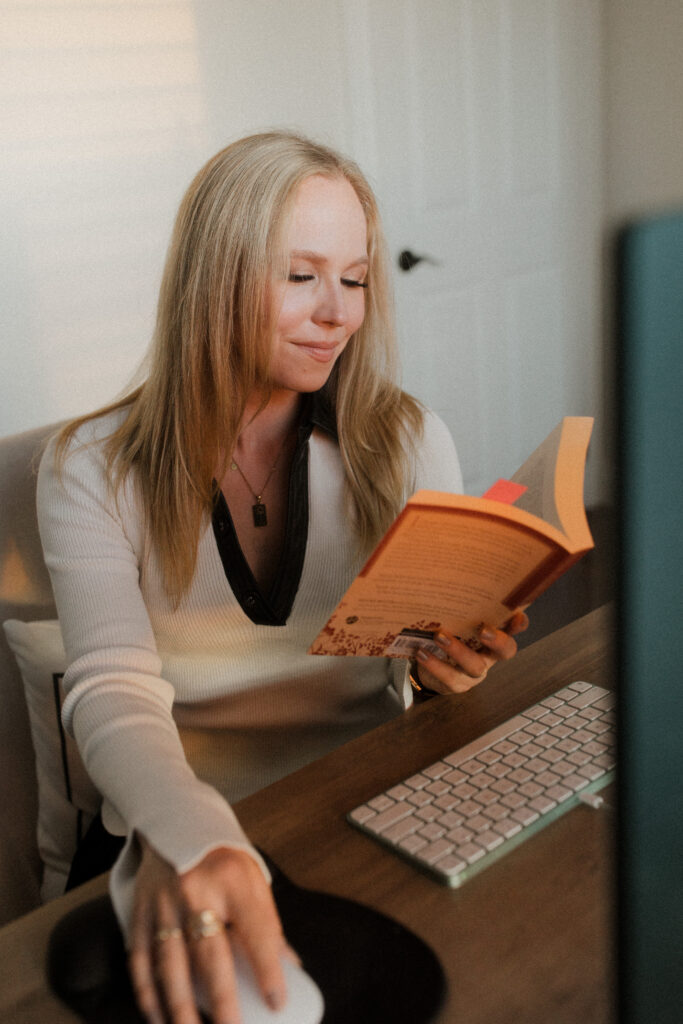
How do you maintain your own mental health while managing the demands of your business and family life?
There are things that are non-negotiable as part of maintaining my own mental health. That doesn’t mean I do them every single day, rather that I do them regularly, and most especially, when needed.
I know myself well now, and my best time is in the morning. That is when I’m full of energy and ready to go. That’s when I’m motivated. That’s when I’m full of ideas. Making the most of this time makes me feel good. I take advantage of this zest by making sure I move in some way in the morning (a walk, strength workout, or yoga), making sure I make a daily plan, making sure I do some housework (usually dishwasher/laundry), and making sure I jot down or voice note any ideas flowing through me. I also write in the mornings. That way, I feel accomplished in my day, right from the get and if I need to rest later, I can do so with peace of mind.
It’s also important for me to connect to my values, and my spirituality in some way. I have my 5 personal values taped to my computer where I can see them every day. This helps me make decisions and set boundaries. I honor my spiritual health by either taking a quick minute to express gratitude, or taking twenty minutes to an hour to journal, visualize, meditate, pull oracle cards or simply reflect. Once in a while I seek out experiences- retreats, events, etc. Whether it’s for 60 seconds or days, tapping into something greater than myself, the big picture, regularly, is important. It’s too easy to get swept up in little things that are ultimately meaningless otherwise.
Making space for my feelings has been an important part of my process. There are times when I need to walk it out, talk it out, or move it out. And I’ve learned the hard way that if you don’t, it’ll be much harder later. I like to make a daily plan, that is flexible and accommodates where I’m at and what comes up. If I need to take a power walk around the block to move through some stuff, I take it. If I need to move things around so I can talk with someone I trust, I do so. If I need to withdraw and take some time alone to move through things, I prioritize that. Emotional regulation is like your pipes- if you don’t clean them out, they’ll get clogged. And there can be a BIG mess when that happens.
Goal setting helps a lot with my mental health. Feeling stagnant can really impact your health and wellbeing. We crave purpose- while many think they lack motivation, it’s usually a lack of purpose that makes it hard to move through the day. A reason for the effort, the fatigue, a strong enough ‘why’ to push through. When I find myself feeling stuck or procrastinating or having a lot of feelings coming up, I often come back to my goals and sense of purpose. Is it time to shift gears? Do I still want what I wanted? Is my intuition trying to tell me something? Are there needs I need to meet first? Do I know what I want and am I taking steps to get there? What’s getting in the way? Do I need to inspire myself? Be spontaneous? Change my environment? This can be a really helpful reset when the mundane routine of everyday tasks is starting to feel suffocating.
What strategies have you found most effective for managing stress and maintaining balance in your life?
For stress:
- Breathwork. Focusing on your breath can get you out of your head and into your body. Certain techniques can shift your nervous system from a stress response to a relaxed response. It’s free, it’s accessible, you can do it for 5 minutes or an hour, and it’s a game-changer.
- Moving the body. Sometimes you have to move the tension out, shift your energy. Whether you walk, workout, dance, stretch, moving the body is an effective way to move through stress that also supports you in other ways.
- Simplicity. If I’m overwhelmed and stressed, I ask myself, ‘how can I simplify this further?’. Say I’m stressed about a meeting- What’s one thing I can do to feel more prepared? What’s one thing I can do to set myself up for the outcome I want? What’s one thing I can do to relax my nervous system for the meeting? How will things be better for me once I’ve had that meeting? (aside from the fact that it’s over haha!). Breaking things down to the facts and the basics / taking one small step forward helps take the pressure off.
- Take a step back. Be curious about the stress. Where’s it coming from? What’s stressing you out? Why? If there’s too much on your plate, how can you lighten the load? If you’re worried about an uncertain outcome, how can you take control of what you can, and lean into surrender for what you can’t? Stress can be a great compass- it can show you where to lean in, where to let go, where to support yourself and where to change it up.
For balance-
- Never strive to give an equal effort in all areas of your life. There are times when you’ll focus more on your family, times where you’ll focus more on your career, times when you’ll focus more on your social life, times when you’ll focus more on your homelife, times when you’ll focus more on your health, etc. You can’t be all in to everything, at all times. Balance is a flow, like waves. The best way to find balance is to be crystal clear on what’s most important, and to make sure you prioritize those things regularly.
2) Know what your personal values are. This is really important, and if you aren’t clear on what your values are definitely take some time to figure it out. Go onto Pinterest, look at ‘personal values’ there are lists and lists on there. Narrow it down to 3-5 based on what resonates deeply with you. Which ones are most meaningful to you? What is most important to you in this life? What triggers you and why? What’s the opposite of that trigger? What makes you feel fulfilled? How would you describe your ideal life? What would you experience? These are great questions to explore to carve out your values. When you’ve got them, have them visible somewhere in your house. A key to maintaining good balance is making sure your lifestyle aligns with your values.
3) Trash the all-or-nothing mentality. If health is important to you, but you’re really busy, do a ten-minute workout. Find the simplest and quickest healthy recipes. Meditate for a minute. Open the front door and breathe in fresh air. If something is important, make it important, even if you have to do it in small, bite-sized pieces. Be honest about the time you can give something, but treat a priority like a priority.
4) Give yourself grace. One of the hardest ways to try and balance all the things is to tell yourself you -should- be doing MORE. It’s like telling someone to get up off the ground and then kicking them back down when they try. Don’t do that to yourself. Be self-compassionate about what’s been going on, what’s been coming up, and where you might not have shown up the way you wanted to…then make some tweaks and move forward. Balance is easier to achieve when you support yourself.
Can you share a particularly rewarding experience you’ve had as a coach and how it affected you personally?
I had a client who came to me because she wanted to grow her network marketing business. Her goal was to work through whatever blocks she had that were getting in the way of her finding success in this industry. When we dug deeper, she was working in healthcare and wanted very badly to leave her job. It was no longer fulfilling her, and her health was starting to be affected. She was unhappy. She’d started the network marketing business so she could afford to leave.
But as much as she liked her side business, her desire to get out of her job outweighed her desire to grow the business. And it was putting a lot of pressure on the business, further obstructing her success.
She needed to get OUT of the job. But felt stuck IN the job. She felt there was no other way out than to grow the business.
I supported her through the process of identifying her biggest needs and wants.
I supported her in identifying the decisions and next steps she needed to move forward and support herself fully.
I encouraged her, and empowered her through the process of finding a new job that she liked, that would bring in the financial security she needed to be able to focus on growing a business.
And then she expressed that she could breathe again. She found a job that excited her. She felt lighter and more free. The freedom she was waiting for her business to provide her, was already hers! Now she could focus on her business without the added pressure of it having to get her out of a job she hated.
I couldn’t be happier for her.
It was a valuable lesson for me as a coach- the longer the business failed, the longer she had to delay making a decision that scared her.
Her fear kept her in a predictable place- where she didn’t have to make scary decisions. It really made me think about moments in my personal and professional life where I’d done this too. Where was I adding in extra steps to avoid biting the bullet?
That was an ah-ha moment for me! And it has stayed with me when I’ve had difficult decisions to make.
What advice would you give to other women who are considering starting their own business or making a significant career change?
Empowering yourself through your work is a beautiful thing.
For women starting a business, my biggest piece of advice is to make sure you have the income you need, with a job that isn’t making you unhappy or unhealthy, before starting your business. Starting a business takes time. There’s a learning curve. For a lot of women, there’s some confidence building to do. You need time to figure things out, learn, try things, fail, try again, develop your skills, etc. Building a business from a place of feeling secure greatly increases your chances of success, compared to hopping into a business from a place of lack and need. Believe in yourself, and give yourself the best chance to succeed.
For women considering a career change, my biggest piece of advice is to trust yourself. If you feel it’s time for a change- then it’s probably time for a change. Don’t feel you’re throwing away a good career, good money, or that you’ve wasted education or skills. You get to take all your experience, all your knowledge, and all your gifts and skills with you into something new. It might feel intimidating to start over, or to be a beginner again, but you won’t be starting out forever. Get clear on what you want out of your job- make a list of what’s a YES, and what’s a definite NO. Don’t settle, keep looking and stay open.
How do you stay motivated and inspired in your work, especially during challenging times?
Staying motivated and inspired comes down to the things I do in my day to support myself and feel good.
-When my needs are met; sleep, nutrition, movement, nervous system regulation, social, etc., I cope better and I’m more resilient.
-When I wear clothes that make me feel great- I feel more confident and ready to tackle what comes up in my day.
-When I know what I’m working towards and I have visuals (like a vision board) so I can see it, it helps me focus and gets me inspired.
-When I put myself in new places or try new things- new walking trails, new coffee shops, new workouts, a new smoothie recipe etc., it inspires me and opens me up to new ideas.
-When I listen to music with lyrics that pump me up, it boosts my mood and primes me for a task.
-When I engage my senses- with music, with aromatherapy, with textured clothes, with inspiring visuals etc., it brings me into the present and helps me feel inspired.
Knowing what feels good to you and what excites you- and sprinkling that into your daily routines as much as possible, is the best way to maintain motivation and inspiration. In the challenging times it might be harder to feel inspired, so focus on self-care and supports (emotions, physical relaxation, rest, nutrition, etc.). Break your tasks and goals into more bite-sized pieces while you reset. As soon as you start feeling more like yourself, get back to those feel good & inspiring activities.
What are some common misconceptions about empowerment coaching, and how do you address them in your practice?
Empowerment coaching is something that can expand on what you thought possible for yourself, and support you in realigning the parts of your life that aren’t working or aren’t a right fit.
This takes time- which is hard when the world today promises quick fixes, 30-day solutions and endless hacks.
What I’ve found, is that many clients come to me for one thing, and when we really started exploring, what they actually want to work on is something different, and often deeper. I am very honest with prospective clients who inquire about timelines about the importance of giving yourself the time to do the work and integrate what you learn. Things come up in life that can throw you off track with your goals, and you need support coming back…Or things can come up for you while you’re making changes that you didn’t expect (like big feelings). The road from where you are to where want to be isn’t linear, and that’s something a lot of clients don’t expect.
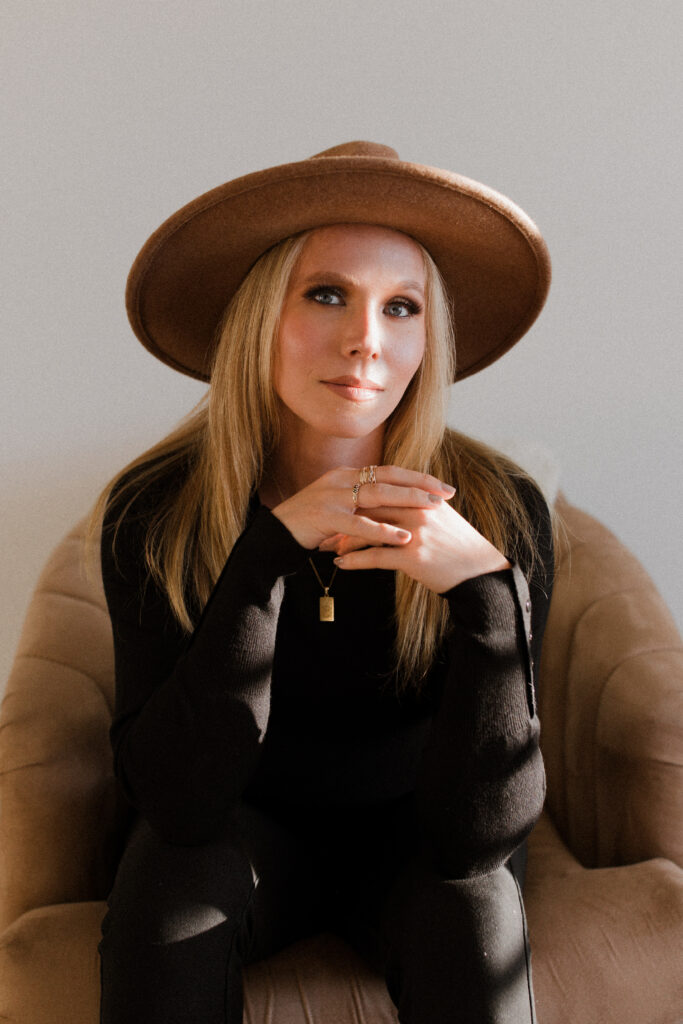
How has your coaching business evolved since its inception, and what changes are you most proud of?
When I started my business, I was a baby business owner coaching other baby business owners. I was basically sharing the knowledge I gained through my own personal development journey and helping other women stay motivated and set goals.
Over time, I noticed that many women came to me to grow themselves so they could grow their business. But what came up in our sessions had nothing to do with business at all! They wanted to talk about how to have hard conversations with the people in their lives. They wanted to be able to show up on social media on camera without feeling like they were going to puke. They wanted to make changes in their personal lives and up their self-care game and be more present for their kids. They wanted more time to themselves, to rest and do what they want and not just what they ‘have to’.
They all had something in common- they wanted to feel empowered. They wanted to feel in control. Confident. Cared for. Energized. On purpose. Free. Happy.
It wasn’t about money and it wasn’t about work. It was about THEM. Who they wanted to be, and what they wanted to experience and what they wanted to do.
With this realization, my business shifted. It shifted to meeting women where they are, and helping them do the identity work and daily system setup for them to live the way they want and feel the way they want.
To be honest, this shift was both exciting and challenging.
It’s much easier to sell ‘Overcome your blocks and explode your business and income’ than it is to sell ‘Get to know who you really are and make the meaningful changes in your life that will have you excited to wake up and energized throughout your day’.
But I moved with what was right in my business and not what would be an easier sell. And I’m proud of that.
What future goals or projects are you excited about, and how do they align with your mission to empower others?
This year I realized that there are many different ways to empower others, and that I wanted to explore different avenues of contribution.
I’ve started a casual job supply teaching at a local school, working with and supporting youth. It’s been quite fulfilling and gets me out into the world (and out of the office!). Different environments
I’m currently writing, and plan on publishing a novel with themes of empowerment. Stories can have such a strong impact on us, and I’m incredibly excited to be starting the process of putting together my first fiction book.
I have plans to revamp my podcast by the end of this year. I find podcasts to be very inspiring, and after a much-needed break, I’m excited to get back to the microphone and have some empowering, authentic and meaningful discussions.
How do you balance professional ambitions with personal responsibilities, and what tips do you have for others in similar situations?
There are times when my personal responsibilities have felt like they take up all the time and energy in my life.
It can be overwhelming at times.
The best way to balance professional ambitions with personal responsibilities is to have systems in place that work for you.
By systems, I mean routines and supports in daily life.
I have a strong morning routine that ensures I hit my growth, creative and household goals early when I’m not caring for my kids.
That’s a system that works for me.
I have tools I use when things come up, when I have emotions to move through or I’m struggling with something.
Identifying when I need support and using my tools is a system that works for me.
I like to write things out when life is feeling like a lot. It helps me get things out of my head and get more clarity. I’m also a list & cross off person.
That’s a system that works for me.
With the right systems (for you) & planning, you can make it all fit. Some weeks will be harder than others, but it’s not about perfection, it’s about consistency.
Knowing yourself well, taking radical responsibility, being compassionate with yourself and setting yourself up for success is the best way to achieve it.
IG: @melissaljirovec
Podcast link: https://www.buzzsprout.com/1422802/share
W: www.melissajirovec.com
